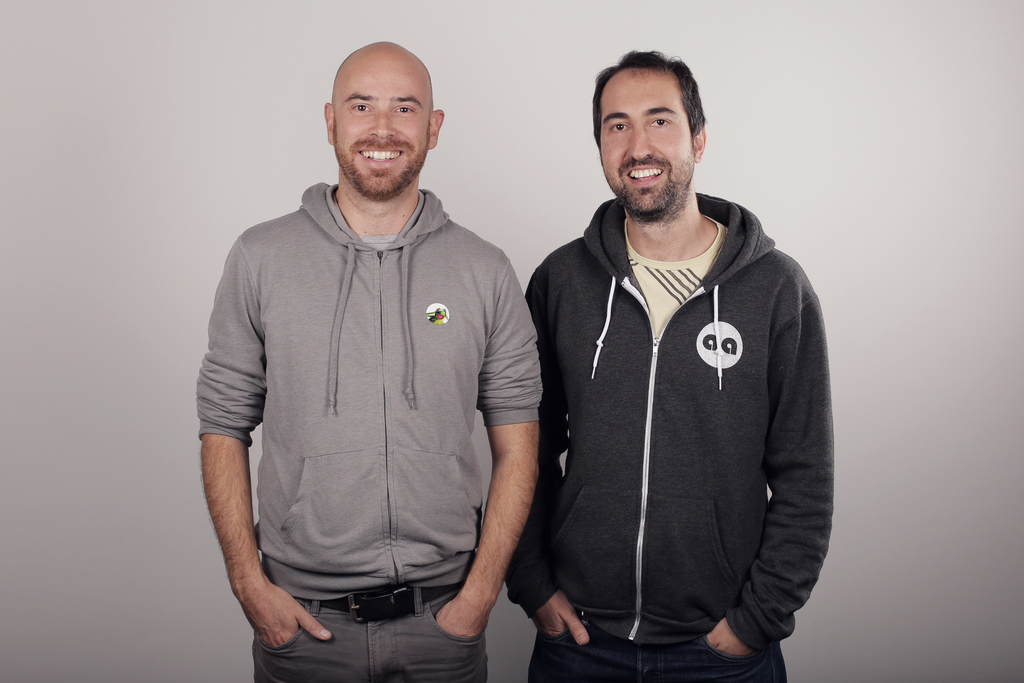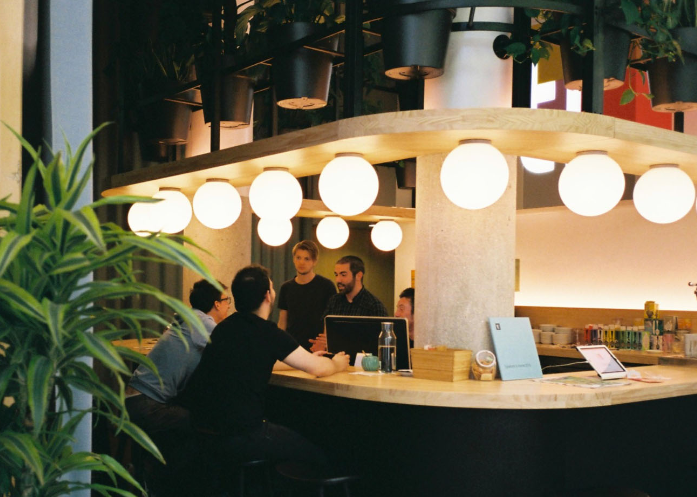When your startup consists of you and your co-founder, it’s not that hard to shape the culture. Even though Typeform started with two co-founders , it has grown and in the last 18 months from 30 to 150 employees, and they have no intention to stop growing.
So how are they keeping a healthy culture? It’s not a poster on a wall, we live it, says co-CEO and co-founder Robert Munoz:
Our company culture is a product of what kind of workplace I, David (co-founder) and the first employees wanted to create when we started Typeform. We didn’t have a master plan to define our culture but we knew that a total focus on product, people and creating a collaborative place to work made sense.
Product & People first
Traditionally SaaS companies are all about product in the beginning. Robert and David have always been searching for the balance where product meets people:
We know that if we invest in both our talent and in our product at the same level, revenues will come along with it.

That’s why they have created three pillars to put people and product as top priorities:
- Business to take the market
- Innovation to be ahead of the curve
- Culture to create a great work environment
He explains that scaling culture has become more and more important with growth, as the company has been going through three different stages most startups face.
We started at (1) product phase, where it’s all about building the best fucking product. Then moved into a (2) service phase where it was all about giving our acquired users the best service possible. Now we’re at the (3)organizational stage, where building a well functioning business with different teams and functions. Here’s the focus on scaling culture maybe the most important key.
At a time when good work culture is uber important, the founders acknowledges that they’re facing challenging times as they grew from 50 to 150 employees in one year.
The magic number — 150
Oxford evolutionary psychology professor Robin Dunbar created a theory that humans only can maintain personalized relationships with 150 people, so it’s not without reason Robert says they’ve been struggling a bit with communication lately:
We are very aware that we’re crossing this magic line. Decision making based on consensus is not as effective as before and spreading information across the organization is a new challenge, so we need to add more structure in place.
The main challenge with adding structure, according to Robert, is to be efficient as an organization without killing creativity and the startup feeling.
The last year we’ve been focusing on redefining our vision, product mission and values, as this is a big part of creating alignment and improving communication and decision making.
Creating values is hard, especially if it needs to resonate with a lot people. So a while back the Typeform people sat down to draw out their company values.
First, me and my co-founder David met with the creative/content team and some other people to write a list of values that we thought made sense for our day to day. Then we published and announced the values to the company and we realized that some of the values didn’t resonate and that some others were confusing.
They needed a value revolution.
We decided to scrutinize the values with every team of the company and we realized that if you want people living the values, it’s better to make them participate so they feel more engaged and you don’t end up just hanging your values on a wall.
At the end, they threw away their first values and came together with the whole company up with a list of seven values that randomly formed the acronym: CHEF PIE.
Lunch roulette
Another key element when growing fast is making sure everyone get to know each other, no matter how big the team gets, says Robert:
Something we really focus on when growing fast is keeping founders and managers approachable, this is super important, and we are experimenting with several ways of making this happen easier.
One of the experiments is a Slack bot that matches random people for coffee breaks and lunches, so everyone gets to know each other better, also all the managers.
It’s actually been a real success. I love having coffee with people from the office I don’t know that well.

When you walk into the Typeform office in Barcelona, the first thing meeting you is the barception (bar + reception) with free drinks and coffee served by the barceptionist. There’s also free healthy lunches, more benefits than your average day can handle, and a big lofty office.
You would think that even for a company that have raised $15 million in venture capital, this kind of spending would be over the top. Robert thinks the opposite:
Somebody told me that you’ll never over-invest in people. I don’t think investing heavily in culture is expensive at all, at least in our industry. Luckily we have investors that believe in that mentality as well.
Inclusion
The co-founders Robert and David along with the management team is learning as they go in terms of growing a huge, fast-moving organization. To succeed in their mission to make their product a little more human, there’s one element they need to do perfectly.
We need to include our teams as much as we can in the shaping of our culture, and continue to spend a lot of time, effort and resources on making people challenged, happy and at home.
As they’re planning on growing the team substantially the next two years, and with an additional office opening in the US soon, the ultimate test for Typeform lies ahead of them:
As we scale the culture of the company can change a little bit, but we don’t need to freak out about that, it’s like any person’s personality, it changes. However, we want to keep building an awesome place to work. A place where people can be themselves, be heard, innovate, and do big things together.